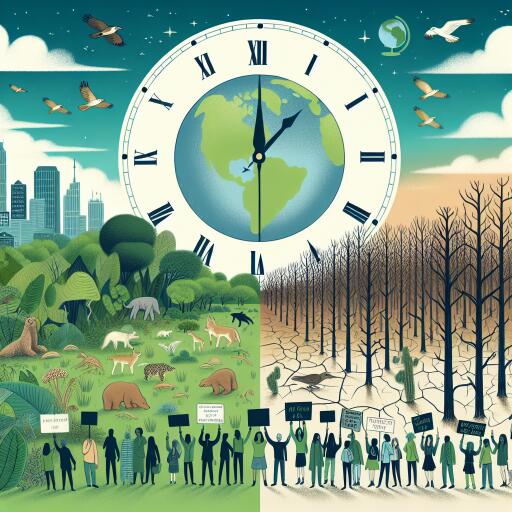
Climate Change – Why Action Is Imperative Now
Climate change has emerged as a formidable challenge for Pakistan, threatening vast segments of the population. Despite a minimal contribution of 0.88% to the global greenhouse gas emissions, Pakistan ranks among the most vulnerable countries in the world, placing it in a precarious situation with severe consequences.
The repercussions of climate change in Pakistan are extensive and cannot be overstated. Rising temperatures, skewed rainfall patterns, recurrent floods, droughts, and the melting of glaciers have become a part of the nation’s reality. Between 1960 and today, Pakistan has witnessed a 0.5°C increase in the average temperature, with forecasts pointing towards an additional rise of 1.3°C to 1.5°C by 2050.
This climatic shift has resulted in massive economic damages, exceeding $40 billion, due to floods alone, as witnessed in 2022, which caused the loss of over 1,700 lives and left 12,000 people injured. Furthermore, by 2044, it’s estimated that five million Pakistanis may be subjected to the threat of severe river flooding every year. The coastal regions face their own set of perils, with sea level rise and coastal flooding expected to affect a million individuals by the end of the century.
These extreme weather patterns lead to significant challenges, especially in rural parts where they disrupt lives, educational activities, force families to relocate, and worsen the spread of diseases such as diarrhea and malaria due to polluted water sources. Moreover, food insecurity is amplified as erratic cropping patterns affect yields, contributing to malnutrition.
Projections indicate that the combined impacts of climate change, environmental degradation, and pollution could potentially reduce Pakistan’s GDP by 18-20% by the middle of the century, thereby impeding key developments in reducing poverty and achieving sustainable growth.
There is a recognition of the urgent need for action. Pakistan has taken crucial steps on the international stage, notably at COP29, signifying its commitment to tackling climate change. The launch of a climate financing framework marks a positive stride in attracting investment towards sustainable projects. These efforts align with Pakistan’s ambitious targets of cutting carbon emissions by 30% and achieving a renewable energy mix of over 60% by 2030.
Though these targets illustrate the country’s resolve towards environmental sustainability, challenges such as regulatory inefficiencies, financial limitations, and the necessity for a unified policy approach pose significant obstacles in achieving these aspirations.
Realizing these goals requires a collaborative approach. Bridging discussions through platforms that encourage public and private sector engagement, along with NGOs and international bodies, can lead to shared insights. Such dialogues can address issues like renewable energy, climate-resilient infrastructure, disaster readiness, and the integration of sustainable business practices.
Building on successful past dialogues, it is evident that commitment from all relevant stakeholders is crucial to maintaining momentum. Previous conferences have highlighted essential areas such as green financing, strategies to reduce carbon footprints, and policy recommendations to support a sustainable economy. Future forums will continue to act as catalysts for developing a national roadmap to advance climate resilience by facilitating exchanges of ideas, strengthening policy support, and promoting implementable solutions for climate adaptation and mitigation.
Pakistan faces complex climate challenges that necessitate a comprehensive strategy. Strengthening infrastructure to withstand severe weather, developing climate-resilient housing, and improving agricultural systems are essential to protect high-risk communities. The adoption of green technologies, like solar and wind energy, can reduce reliance on fossil fuels and help mitigate climate risks.
Furthermore, raising public awareness and advocacy will be key in galvanizing grassroots movements to foster stronger policy frameworks.
Pakistan stands at a critical juncture in its climate change journey. Both local and international platform commitments, combined with ongoing efforts by various organizations and individuals, stress the need for united efforts.
Through continuous dialogue, thoughtful policy implementation, and investments in sustainable solutions, Pakistan has the potential to pave the way towards a greener, more resilient future. It is essential for all sectors of society—government, businesses, and civil society—to collaborate in transforming climate pledges into measurable progress. The time to act is now, before the opportunity slips away.





Leave a Reply